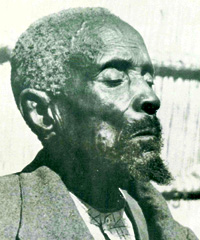










Alex Smith
Amanze Akpuda
Amitabh Mitra
Ando Yeva
Andrew Martin
Aryan Kaganof
Ben Williams
Bongani Madongo
Chielozona Eze
Chris Mann
Chukwu Eke
Chuma Nwokolo
Colleen Higgs
Colleen C. Cousins
Don Mattera
Elizabeth Pienaar
Elleke Boehmer
Emilia Ilieva
Fred Khumalo
Janice Golding
Lebogang Mashile
Manu Herbstein
Mark Espin
Molara Wood
Napo Masheane
Nduka Otiono
Nnorom Azuonye
Ola Awonubi
Petina Gappah
Sam Duerden
Sky Omoniyi
Toni Kan
Uzor M. Uzoatu
Valerie Tagwira
Vamba Sherif
Wumi Raji
Zukiswa Wanner
![]()
Credits:
Ntone Edjabe
Rudolf
Okonkwo
Tolu Ogunlesi
Yomi Ola
Molara Wood
![]()
 |
||||||
Chris Mann Chris Mann is a fourth generation South African of English and Irish descent (McMahon). His writing is informed by the daily use of different South African languages and his varied experience of people and life in that country. His nickname ‘Zithulele’ (Xhosa/Zulu) means a taciturn person. He and the artist Julia Skeen were married in 1981. They have two children and live in Grahamstown. His poems have appeared in books, newspapers, magazines, journals, textbooks and in various anthologies in South Africa and abroad His many publications include the 2006 volume, Lifelines (with Skeen, Julia and Craig, Adrian)
Photo: Msebenzi
Hlongwane, The Clan Bard of the Drakensberg (Okhahlamba.) |
||||||
| Three Poems | ||||||
| Mandela’s
Cell I stood among a crowd of tourists from abroad and stared into his past: a cage of bricks and bars And in that ancient tomb nor see a gaunt-faced man walked out into the sun.
in memoriam Msebenzi Hlongwane Behind that weathered face of yours, what memories of glossy cattle herds, clamped in a Midrand traffic crawl, Why had you come to haunt me there? I wondered what you’d make of us, How would you view the billboard ads, I turned a talk-show’s chatter down shuffling over the dawn-brimmed dew Is this what cities do to clans? A pregnant girl yawned in a door, a fence that kraaled a few thin cows, Still tense, at being so late, so stuck That phrase where one king’s called Aaah Tshani! Grain-pit-of-memories! below that huge amphitheatre of rock. to lift my voice, to praise the dawn
The Golden Rhino of Mapungubwe A gully of thorn-bush, smitten by the heat. You were a saga upwind of me. Had been, I sat in a jeep, my camera aimed like a rifle, What art, I thought, could begin to semaphore A month or so later, back home at my desk, You were a small, austere replica of your self, I gazed and gazed, at the stump-strong legs, into the word-carved talisman of this poem. |
||||||

